
°æƒø°ø–°Õı‘⁄ƒÍ≥ı”√50ÕÚ‘™π∫¬Ú“ª¡æ¥Ûªı≥µ£¨µ⁄“ªƒÍ“ÚΩ…ƒ…∏˜÷÷∑—”√÷ß≥ˆ6ÕÚ‘™£¨¥”µ⁄∂˛ƒÍ∆£¨√øƒÍ∂º±»…œ“ªƒÍ‘ˆº”÷ß≥ˆ2ÕÚ‘™£¨ºŸ∂®∏√≥µ√øƒÍµƒ‘À ‰ ’»Îæ˘Œ™25ÕÚ‘™.–°Õı‘⁄∏√≥µ‘À ‰¿€º∆ ’»Î≥¨π˝◊Ð÷ß≥ˆ∫Û£¨øº¬«¥Ûªı≥µ◊˜Œ™∂˛ ÷≥µ≥ˆ €£¨»Ù∏√≥µ‘⁄µ⁄![]() ƒÍƒÍµ◊≥ˆ €£¨∆‰œ˙ €º€∏ÒŒ™25-
ƒÍƒÍµ◊≥ˆ €£¨∆‰œ˙ €º€∏ÒŒ™25-![]() ÕÚ‘™£®π˙º“πÊ∂®¥Ûªı≥µµƒ±®∑œƒÍœÞŒ™10ƒÍ£©.
ÕÚ‘™£®π˙º“πÊ∂®¥Ûªı≥µµƒ±®∑œƒÍœÞŒ™10ƒÍ£©.
£®1£©¥Ûªı≥µ‘À ‰µΩµ⁄º∏ƒÍƒÍµ◊£¨∏√≥µ‘À ‰¿€º∆ ’»Î≥¨π˝◊Ð÷ß≥ˆ£ø
£®2£©‘⁄µ⁄º∏ƒÍƒÍµ◊Ω´¥Ûªı≥µ≥ˆ €£¨ƒÐ π–°ÕıªÒµ√µƒƒÍ∆Ωæ˘¿˚»Û◊Ó¥Û£®¿˚»Û=¿€º∆ ’»Î+œ˙ € ’»Î-◊Ð÷ß≥ˆ£©£ø
°æ¥∞∏°ø(1)![]() £ª(2)
£ª(2)![]() £Æ
£Æ
°æΩ‚Œˆ°ø
‘Â∑÷Œˆ£∫(1)…Ë¥Ûªı≥µ‘À ‰µΩµ⁄![]() ƒÍƒÍµ◊£¨∏√≥µ‘À ‰¿€º∆ ’»Î”Î◊Ð÷ß≥ˆµƒ≤ÓŒ™
ƒÍƒÍµ◊£¨∏√≥µ‘À ‰¿€º∆ ’»Î”Î◊Ð÷ß≥ˆµƒ≤ÓŒ™![]() ‘™£¨‘Ú
‘™£¨‘Ú![]() £®
£®![]() £¨
£¨![]() £©£¨¡Ó
£©£¨¡Ó![]() Ω¯∂¯µ√≥ˆº¥ø…µ√µΩΩ·¬€£ª(2)”…¿˚»Û
Ω¯∂¯µ√≥ˆº¥ø…µ√µΩΩ·¬€£ª(2)”…¿˚»Û![]() ¿€º∆ ’»Î
¿€º∆ ’»Î![]() œ˙ € ’»Î
œ˙ € ’»Î![]() ◊Ð÷ß≥ˆ£¨µ√≥ˆƒÍ∆Ωæ˘¿˚»ÛŒ™
◊Ð÷ß≥ˆ£¨µ√≥ˆƒÍ∆Ωæ˘¿˚»ÛŒ™![]() £¨º¥ø…¿˚”√ª˘±æ≤ªµ» Ω«ÛΩ‚◊Ó÷µ£¨µ√≥ˆΩ·¬€.
£¨º¥ø…¿˚”√ª˘±æ≤ªµ» Ω«ÛΩ‚◊Ó÷µ£¨µ√≥ˆΩ·¬€.
‘Ã‚Ω‚Œˆ£∫£®1£©…Ë¥Ûªı≥µ‘À ‰µΩµ⁄![]() ƒÍƒÍµ◊£¨∏√≥µ‘À ‰¿€º∆ ’»Î”Î◊Ð÷ß≥ˆµƒ≤ÓŒ™
ƒÍƒÍµ◊£¨∏√≥µ‘À ‰¿€º∆ ’»Î”Î◊Ð÷ß≥ˆµƒ≤ÓŒ™![]() ‘™£¨‘Ú
‘™£¨‘Ú![]() £®
£®![]() £¨
£¨![]() £©
£©
”…![]() £¨ø…µ√
£¨ø…µ√![]()
°þ![]() £¨π ¥”µ⁄»˝ƒÍ£¨∏√≥µ‘À ‰¿€º∆ ’»Î≥¨π˝◊Ð÷ß≥÷£ª
£¨π ¥”µ⁄»˝ƒÍ£¨∏√≥µ‘À ‰¿€º∆ ’»Î≥¨π˝◊Ð÷ß≥÷£ª
£®2£©°þ¿˚»Û=¿€º∆ ’»Î+œ˙ € ’»Î-◊Ð÷ß≥ˆ£¨
°ý∂˛ ÷≥µ≥ˆ €∫Û£¨–°ÕıµƒƒÍ∆Ωæ˘¿˚»ÛŒ™![]()
µ±«“Ωˆµ±![]() ±£¨µ»∫≈≥…¡¢.
±£¨µ»∫≈≥…¡¢.
°ý–°Õı”¶µ±‘⁄µ⁄5ƒÍΩ´¥Ûªı≥µ≥ˆ €£¨ƒÐ π–°ÕıªÒµ√µƒƒÍ∆Ωæ˘¿˚»Û◊Ó¥Û.


 √˚–£øŒÃ√œµ¡–¥∞∏
√˚–£øŒÃ√œµ¡–¥∞∏
| ƒÍº∂ | ∏þ÷–øŒ≥à | ƒÍº∂ | ≥ı÷–øŒ≥à |
| ∏þ“ª | ∏þ“ª√‚∑—øŒ≥ÃÕ∆ºˆ£° | ≥ı“ª | ≥ı“ª√‚∑—øŒ≥ÃÕ∆ºˆ£° |
| ∏þ∂˛ | ∏þ∂˛√‚∑—øŒ≥ÃÕ∆ºˆ£° | ≥ı∂˛ | ≥ı∂˛√‚∑—øŒ≥ÃÕ∆ºˆ£° |
| ∏þ»˝ | ∏þ»˝√‚∑—øŒ≥ÃÕ∆ºˆ£° | ≥ı»˝ | ≥ı»˝√‚∑—øŒ≥ÃÕ∆ºˆ£° |
ø∆ƒø£∫∏þ÷–µÿ¿Ì ¿¥‘¥£∫ –գ∫
°æƒø°ø–ƒ¿Ì—ß÷–¥Ê‘⁄◊≈–Ì∂ý”–»§µƒ°∞µπU«˙œþ°±£¨œ¬ÕºæÕ «±Ìœ÷—π¡¶”Îπ§◊˜º®–ßπÿœµµƒ°∞µπU«˙œþ°±£¨«Î∏˘æðœ¬Õº–¥≥ˆπÿ”⁄—π¡¶”Îπ§◊˜º®–ßπÿœµµƒ¡ΩÃıΩ·¬€≤¢∏¯≥ˆ“ªÃıΩ®“È°£
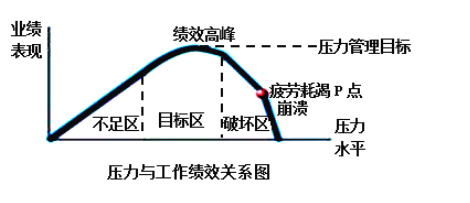
¥£∫________________________________________________________________________
________________________________________________________________________
≤Èø¥¥∞∏∫ÕΩ‚Œˆ>>
ø∆ƒø£∫∏þ÷–µÿ¿Ì ¿¥‘¥£∫ –գ∫
°æƒø°ø‘ƒ∂¡¿ÌΩ‚°£
A
Learning to speak English well may be the best thing you can do to improve your life. That°Øs right. If you can communicate in English, you can do the following things:
Contact (¡™œµ) people from all over the world. Talk about your ideas and opinions on Internet discussion groups. Send e-mails to interesting people. Learn about their life and culture.
Travel more easily. Communicate with people wherever you go°™English is spoken in more than 100 countries. Ask directions, have a conversation, or ask for help. Maybe English will save your life some day!
Push your career forward. If you want a good job in business, technology, or science, get out of that armchair and start learning English now! If you already have a good job, start learning before you lose it! Knowing English will let you do the following things:
Put °∞excellent knowledge of English°± on your CV (¬ƒ¿˙). Get your dream job, and earn more money.
Gain technical knowledge. English is the language of technology, especially high technology like computer science, and medicine. If you°Øre going to read about technology, you°Øll probably have to do it in English.
Be a world-class businessman or woman. It°Øs simple. International business is done in English. And all business today is international. So if you want to play, you have to know English°™to contact other business people, go to conferences, and read international business newspapers and magazines, ect.
Become a better scientist. Contact scientists from other countries, go to international conferences, and visit research centers abroad. Learn about new scientific discoveries by reading papers, books, and magazines.
Use your computer more effectively. Most computer applications are in English, so you will understand them better°™and become a better employee.
°æ1°øAccording to the passage, which one is NOT the advantage of knowing English well?
A. Contacting people more easily.
B. Expressing your ideas clearly.
C. Traveling by spending less money.
D. Learning people°Øs life or culture.
°æ2°ø Why does the author say English may save your life some day?
A. Because it enables you to get help from others.
B. Because it helps you gain more knowledge.
C. Because it enables you to tell directions to others.
D. Because it helps you lead a better life.
°æ3°ø What°Øs the structure (Ω·ππ) of the passage?
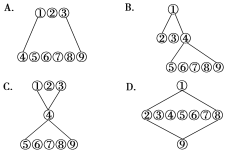
°æ4°øWhat does the passage mainly convey?
A. Ways to learn English.
B. Ways to contact people.
C. Importance of gaining knowledge.
D. Benefits of learning English well.
≤Èø¥¥∞∏∫ÕΩ‚Œˆ>>
ø∆ƒø£∫∏þ÷–µÿ¿Ì ¿¥‘¥£∫ –գ∫
°æƒø°ø2016ƒÍ8‘¬£¨π„∂´ °π´≤º¡À∏þøº◊€∫œ∏ƒ∏Ô ‘µ„∑Ω∞∏£¨≤¢¥”2018ƒÍ«Ôºæ–¬»Î—ßµƒ∏þ“ª—ß…˙ø™ º µ ©°£–¬∑Ω∞∏◊Ó¥Û¡¡µ„ «∏¯—ß…˙∂ý÷÷—°‘Òµƒª˙ª·£¨“≤“Ú¥À∏¯—ß…˙∫Õº“≥§¥¯¿¥«∞À˘Œ¥”–µƒÃÙ’Ω°£Œ™¥À£¨π„∂´ƒ≥µÿ∑Ω±®÷Ω◊˜¡Àœýπÿ±®µ¿£¨≤¢≈‰∑¢¡Àœ¬√Ê’‚∑˘≤ÂÕº£¨«Î◊–œ∏π€≤Ï£¨∏˘æð“™«Û◊˜¥°££®6∑÷£©
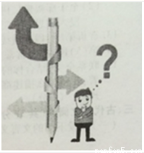
£®1£©ºÚ“™Àµ√˜ª≠√ʃ⁄»ð°££®2∑÷£©
£®2£©¥”’‚∑˘≤ÂÕºµƒ¥¥“‚≥ˆ∑¢£¨Ω“ æª≠√ʵƒƒ⁄∫≠°££®4∑÷£©
≤Èø¥¥∞∏∫ÕΩ‚Œˆ>>
ø∆ƒø£∫∏þ÷–µÿ¿Ì ¿¥‘¥£∫ –գ∫
°æƒø°øºŸ∂®”¢”ÔøŒ…œ¿œ ¶“™«ÛÕ¨◊¿÷ƺ‰Ωªªª–Þ∏ƒ◊˜Œƒ£¨«Îƒ„–Þ∏ƒƒ„Õ¨◊¿–¥µƒ“‘œ¬◊˜Œƒ°£Œƒ÷–π≤”–10¥¶”Ô—‘¥ÌŒÛ£¨√øæ‰÷–◊Ó∂ý”–¡Ω¥¶°£¥ÌŒÛ…ʺ∞“ª∏ˆµ•¥ µƒ‘ˆº”°¢…æ≥˝ªÚ–Þ∏ƒ°£
‘ˆº”£∫‘⁄»±¥ ¥¶º”“ª∏ˆ¬©¥ ∑˚∫≈£®°ƒ£©£¨≤¢‘⁄∆‰œ¬√Ê–¥≥ˆ∏√º”µƒ¥ °£
…æ≥˝£∫∞—∂ý”ýµƒ¥ ”√–±œþ£®\£©ªÆµÙ°£
–Þ∏ƒ£∫‘⁄¥Ìµƒ¥ œ¬ªÆ“ª∫·œþ£¨≤¢‘⁄∏√¥ œ¬√Ê–¥≥ˆ–Þ∏ƒ∫Ûµƒ¥ °£
◊¢“‚£∫
1. √ø¥¶¥ÌŒÛº∞∆‰–Þ∏ƒæ˘ΩˆœÞ“ª¥ £ª
2. ÷ª‘ –Ì–Þ∏ƒ10¥¶£¨∂ý’þ£®¥”µ⁄11¥¶∆£©≤ªº∆∑÷°£
Last Sunday, my father go to see a film. But in our surprise, he came back soon. He told us about the funny thing what had happened. He was sitting in his seat while a woman came to her and said the seat was hers. So they looked at their tickets careful, only to find the seats were the same while the color were different. After while, my father apologized to the woman, saying, £¢Sorry, I make a mistake.£¢ The fact was that his ticket found out under the glass on his desk was for the film a month ago.
≤Èø¥¥∞∏∫ÕΩ‚Œˆ>>
ø∆ƒø£∫∏þ÷–µÿ¿Ì ¿¥‘¥£∫ –գ∫
°æƒø°ø2015ƒÍ11‘¬13»’£¨∑®π˙∞Õ¿Ë‘‚”ˆø÷≤¿œÆª˜∫Û£¨»´ ¿ΩÁ»À√Ò“‘°∞Pray For Paris°±µƒª∞ÂŒ™∞Õ¿Ë∆Ì∏£°£œ¬Õº «¥´≤•◊Óπ„∑∫µƒ“ª’≈°£«Î¥Ûº“∆¿ ˆ¥ÀÕºµƒ¥¥“‚°££®4∑÷£©
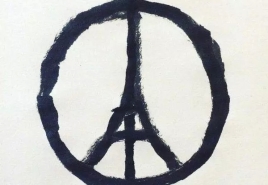
≤Èø¥¥∞∏∫ÕΩ‚Œˆ>>
ø∆ƒø£∫∏þ÷–µÿ¿Ì ¿¥‘¥£∫ –գ∫
°æƒø°ø‘ƒ∂¡¿ÌΩ‚
‘ƒ∂¡œ¬¡–∂ÃŒƒ£¨¥”√øÂÀ˘∏¯µƒÀƒ∏ˆ—°œÓ£®A°¢B°¢C∫ÕD£©÷–£¨—°≥ˆ◊Óº——°œÓ°£
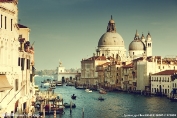
A city without cars would be very strange, right? But Venice is such a city.
Venice is in the northeast of Italy. It wasn°Øt built on land, like Beijing or Shanghai, but on more than 110 islands. Seawater is everywhere around the city.
Even so, travel isn°Øt difficult. The waterways have always been the best way to get around. There are 117 waterways and more than 400 bridges that can guide you where you want to go. People in Venice move from place to place by boat.
Water makes the city special, but it is also a big problem. Sometimes tourists will have such strange experiences. One moment they walk across the Rialto Bridge, and there°Øs nothing special. But when they come back to the bridge an hour later, it°Øs underwater and everyone is wearing rain shoes.
Once, people used too much underground water. This made the city get lower little by little. Now the city has gone down by 23 centimeters. Another problem is the rising seawater. The temperature has risen over the years. This has made the ice of the Arctic Ocean (±±±˘—Û) melt (»⁄ªØ). Every year, high waters hit the city in autumn and winter. When a lot of water comes, more than half of the city is underwater.
Scientists are trying different ways to stop the city from getting even lower. The Italian government has asked some of Italy°Øs biggest companies to build the MOST project, which was planned to be build under the seawater to stop the rising water. Anyway, this project is helping solve the problem.
°æ1°øWhich is the best way to travel in Venice?
A. The waterways. B. Taxis and cars.
C. 400 bridges. D. Boats and rain shoes.
°æ2°øWhat doesn°Øt cause Venice to get lower and lower?
A. The ice of the Arctic Ocean melt.
B. Seawater is everywhere around the city.
C. People used too much underground water
D. The temperature has become higher over the years.
°æ3°øWhat can we infer from the last passage?
A. Venice is sure to stop getting lower.
B. High waters won°Øt hit Venice any more.
C. Scientists can solve the problems easily.
D. Some possible ways help to solve the problem.
°æ4°øWhat°Øs the best title of this passage?
A. The History of Venice
B. The MOST Project of Venice.
C. The Places of Interest of Venice
D. The Specials and Problems of Venice
≤Èø¥¥∞∏∫ÕΩ‚Œˆ>>
ø∆ƒø£∫∏þ÷–µÿ¿Ì ¿¥‘¥£∫ –գ∫
°æƒø°ø‘ƒ∂¡¿ÌΩ‚°£
‘ƒ∂¡œ¬¡–∂ÃŒƒ£¨¥”√øÂÀ˘∏¯µƒÀƒ∏ˆ—°œÓ£®A°¢B°¢C∫ÕD£©÷–£¨—°≥ˆ◊Óº——°œÓ°£
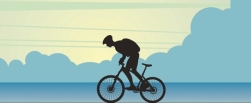
Actually, long-distance bicycle camping is one of the most pleasurable activities I have ever experienced.
I generally sleep poorly at night, but in the woods on a tour, I sleep like a baby, falling asleep with the music of insects. In the morning, I am awakened by the cheeps of birds. I eat a snack before getting up, and then I quickly pack my sleeping bag, air mattress (µÊ), tent, and other things and get on with my road. I'm slower in the morning, having less speed but a greater desire to stop at pleasant spots and enjoy the beautiful scenery. Traveling by bike allows me to stop anywhere, such as grasslands, lakes, woods, and scenic spots. Near lunch, I find a small grocery and buy some bread, sandwiches and fruit. Then I will find a town park or other shady spots to wait out the high mid-day sun. In the afternoon, my speeds are higher, and I spend less time on stops. In the late afternoon, I start riding more slowly, and I start thinking about where I will stop. I finally find a place in the early evening, cook a simple meal and have a rest. As it starts to get dark, I put up my tent, crawl in and fall asleep.
There are exciting times and difficult times as well. Visiting strange or famous places and accomplishing goals are always exciting to me. I meet and talk with interesting people along the way, sometimes other traveling cyclists. Appreciating beautiful views, meeting wild animals, and traveling up and down hills also. On the other hand, I may run into a rainy or hot spell(“ª∂Œ ±º‰), have to repair my bike, or just find myself in a bad mood. The problems are infrequent and are easy to deal with. The pleasures remain in my mind for years.
°æ1°øWe can learn from the passage that the author can have a good sleep ______.
A. in a hotel
B. at home
C. in the shade
D. in the woods
°æ2°ø In the first paragraph, the author tells us that ________.
A. how he sleeps during his travel
B. the route of his bicycle travel
C. why he rides slowly all the time
D. one day°Øs activities of his bicycle travel
°æ3°øIt can be inferred from the first paragraph that the author ________.
A. enjoys a free and pleasant journey
B. likes riding in the woods
C. rides fast in the morning
D. cooks a simple lunch
°æ4°ø According to the passage, a cycle tourist may prefer ________.
A. a beautiful view
B. a rainy day
C. a hot day
D. a strong wind
≤Èø¥¥∞∏∫ÕΩ‚Œˆ>>
ø∆ƒø£∫∏þ÷–µÿ¿Ì ¿¥‘¥£∫ –գ∫
°æƒø°øŒ™¡À—È÷§ƒæÃøø…±ª≈®H2SO4—ıªØ≥…CO2£¨—°”√»ÁÕºÀ˘ æ“«∆˜(ƒ⁄∫¨ŒÔ÷ )◊È◊∞≥… µ—È◊∞÷√£∫
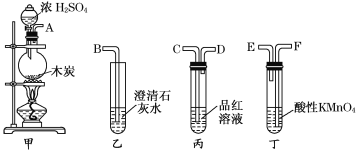
(1)»Á∞¥∆¯¡˜”…◊ۜڔ“¡˜œÚ£¨¡¨Ω”…œ ˆ◊∞÷√µƒ’˝»∑À≥–Ú «(ÃÓ∏˜Ω”ø⁄◊÷ƒ∏)£∫________Ω”________£¨________Ω”________£¨________Ω”________°£
(2)“«∆˜““°¢±˚”¶”–‘ı—˘µƒ µ—Èœ÷œÛ≤≈±Ì√˜“—ºÏ—È≥ˆCO2?
““÷–________________________£¨±˚÷–________________________°£
(3)∂°÷–À·–‘KMnO4»Ð“∫µƒ◊˜”√ «__________________________________________°£
(4)–¥≥ˆº◊÷–∑¥”¶µƒªØ—ß∑Ω≥à Ω____________________________________________°£
≤Èø¥¥∞∏∫ÕΩ‚Œˆ>>
π˙º —ß–£”≈—° - ¡∑œ∞≤·¡–±Ì - ‘¡–±Ì
∫˛±± °ª•¡™Õ¯Œ•∑®∫Õ≤ª¡º–≈œ¢æŸ±®∆Ωî | Õ¯…œ”–∫¶–≈œ¢æŸ±®◊®«¯ | µÁ–≈’©∆≠柱®◊®«¯ | …Ê¿˙ ∑–ÈŒÞ÷˜“”–∫¶–≈œ¢æŸ±®◊®«¯ | …Ê∆Û«÷»®æŸ±®◊®«¯
Œ•∑®∫Õ≤ª¡º–≈œ¢æŸ±®µÁª∞£∫027-86699610 柱®” œ‰£∫58377363@163.com